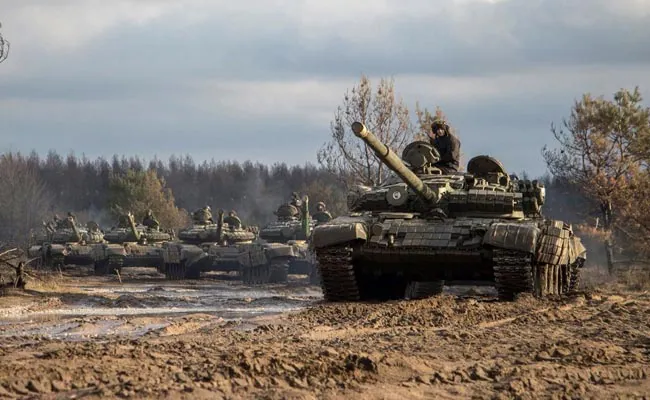MacArthur condemns Russia’s invasion of Ukraine
MacArthur Foundation has condemned Russia’s invasion of Ukraine, saying the attacks put lives at risk, have created massive refugee crisis and jeopardized the current world order. The statement, signed by MacArthur Foundation President John Palfrey reads thus: “We condemn the invasion of Ukraine by Russia. Ukraine is a sovereign nation that poses no threat to […]

The war in Ukraine
MacArthur Foundation has condemned Russia’s invasion of Ukraine, saying the attacks put lives at risk, have created massive refugee crisis and jeopardized the current world order.
The statement, signed by MacArthur Foundation President John Palfrey reads thus:
“We condemn the invasion of Ukraine by Russia. Ukraine is a sovereign nation that poses no threat to others, and Russia’s aggressions put lives at risk, have created a massive refugee crisis, and jeopardize the current world order. It is an affront to democracy and international peace.
“The risk of escalation is real amid this crisis, and it has raised the threat of a nuclear detonation to levels we have not experienced since the Cold War. We stand in support of our Nuclear Challenges grantee organizations that have worked for decades to prevent this.
“Since 1984, MacArthur has invested over $550 million in international peace and security. Over the last 38 years, a large portion of this grantmaking was devoted to nonproliferation and reducing the threat of nuclear weapons through diplomacy. In the early 1990s, we supported successful efforts to denuclearize former Soviet countries, including Ukraine. The number of nuclear weapons worldwide shrunk dramatically during this period, but nine countries still have approximately 13,000 nuclear weapons today.
“The Ukraine crisis is a horrifying case study of why we must do everything possible to make sure that the world knows that nuclear weapons do not make us safer. The threat of a nuclear detonation continues to pose an existential threat to humanity and our environment. If today’s crisis spins out of control, it could result in losing significant ground toward nonproliferation with countries expanding their nuclear arsenals in response to Russian rhetoric.
“We cannot allow this to happen. Nuclear weapons should be viewed as a liability, not an asset–and certainly not something that keeps a country safer.
“Civil society organizations—including many that we have supported with grants—have long worked to reduce the risks posed by nuclear weapons. They have created viable policy options, helped shape international treaties, and kept backchannel dialogue open between countries. Their experts have worked both inside and outside of government to wield positive influence. We are grateful for the tenacity and persistence with which civil society continues to pursue a more peaceful world. While the coming days feel uncertain and scary, we remain confident in the nuclear field’s ability to help create a world that is safer from nuclear weapons.
